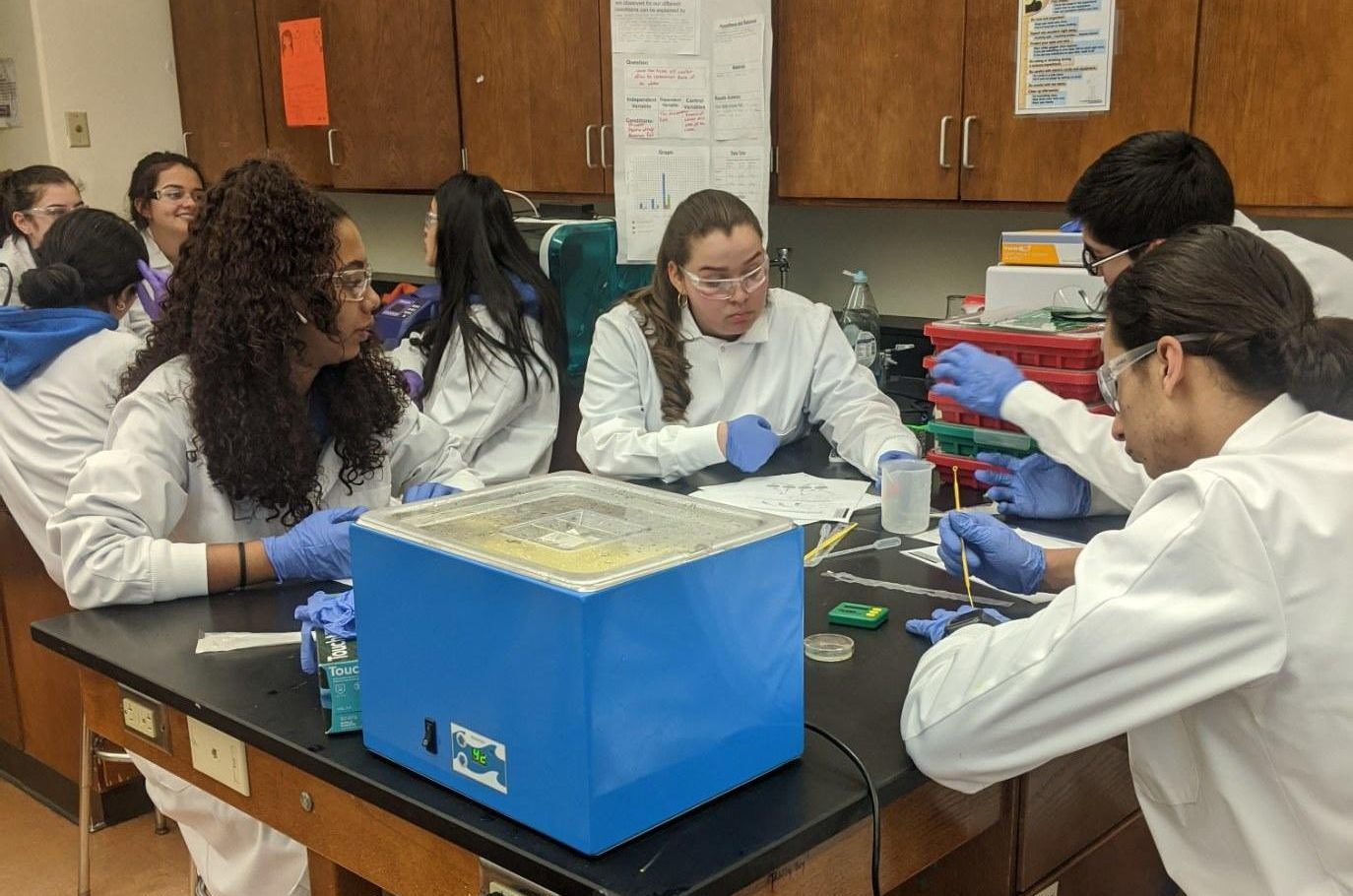In 2019, the MLSC awarded nearly $1.14 million in STEM equipment and professional development funding to 36 public middle schools and high schools in the five school districts of Boston, Brockton, Lawrence, Lowell, and Springfield. Through this MLSC program, vocational-technical and economically disadvantaged public schools can purchase necessary lab equipment and supplies, as well as state-of-the-art tools and technology to better train and prepare students for life sciences careers. In addition, the program offers funding to support teacher professional development related to curriculum implementation and equipment training.
The Boston Public Schools (BPS) received the largest grant, totaling $421,668, to support nine high schools with equipment, supplies, technology, and teacher training that expanded life sciences education for 1,700 students. BPS’ expansive citywide reach was due to the development of new career and technical education Biotechnology Pathways and courses in three high schools, building instructional capacity to integrate biotechnology hands-on labs into 15 existing courses and four new courses in seven high schools with new industry-standard equipment and high-quality training for 21 teachers.
“The Boston Public Schools is thrilled to receive this grant from the Massachusetts Life Sciences Center to support rigorous instructional experiences in biotechnology, which will further expand the district’s career technical education pathways and science instruction, said then Boston Public Schools Interim Superintendent Laura Perille at the time of the funding announcement“This grant will help provide our students with the skills necessary to compete for higher education opportunities and life sciences career options while supporting the training and ongoing professional development of our science educators.”
With the support from the MLSC, BPS teachers gained confidence in facilitating authentic biotechnology laboratory experiences in the classroom during training with the Massachusetts Biotechnology Education Foundation (MassBioEd). Through participating in the labs, teachers are able to predict areas where students may struggle or have questions and network with teachers from other schools and discuss best practices in implementing the target labs. Additionally, the grant provided an opportunity for three teachers to complete summer externships at MIT, also with MassBioEd.
This grant also supported the BPS mission of opening up access for its historically underrepresented students to the life sciences and related STEM careers, amplifying an ethos of biotechnology as an opportunity for all students. Once students become familiar and develop competency with the equipment and its use, it becomes less intimidating and more exciting to them. The school district remains committed to connecting students with the real-world issues biotechnology solves, exposing them to the range of careers in the life sciences, while also introducing them to industry professionals that include women and people of color.



